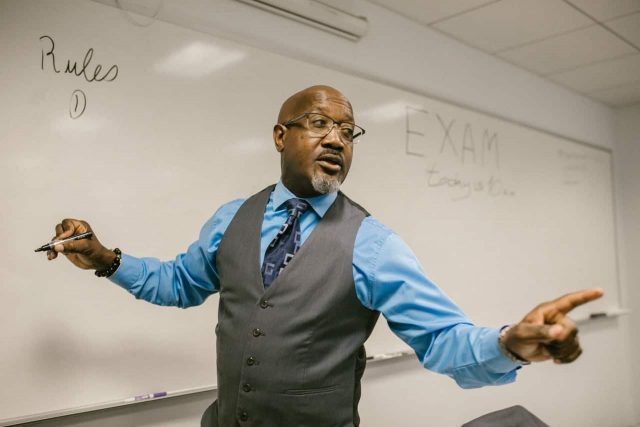Educators, they say, are the country’s greatest hope for a better future. By serving as mentors and role models, they shape and inspire the next generation to realize their full potential.
In fact, a study by researchers from Northwestern University found that students whose teachers helped hone their noncognitive skills attended classes more and were less likely to drop out than their classmates.
Such nurturing continues to the upper echelons of higher education. But in universities, where students are trained to take on more complex career paths, this task is more important than ever. Here’s why strong college-level academic leadership results in a more effective learning environment — and how faculty members can bring out the leader in themselves.
Paving the way for progress
When educators are leaders, all parties have something to gain. First and foremost, by fostering positive relationships with students, leader-educators boost learning and achievement. And through exposure to leadership in action, students are encouraged to take the initiative and hone their own leadership skills, an ability that can benefit them as they embark on their own careers.
But being a leader-educator not only empowers students, but faculty members, themselves. By having the skill to understand their own strengths and weaknesses, they take charge of their own personal development in a way that suits them best. A faculty that constantly strives for self-improvement can only prove beneficial to any institution in the long run.
Beyond this, leader-educators are critical thinkers too, finding ways to keep school policies and curricula up-to-date and leveraging the best educational technology tools to do so. And through the inclusion of the entire faculty in leadership training, even junior members or those from underrepresented groups — such as women and people of color — get an equal say, resulting in diverse inputs that can only drive the growth of the university exponentially.
Ultimately, though, a faculty of leader-educators helps universities provide quality education, no matter the circumstance. Though student enrolment is on the decline, student debt is on the rise, and many universities are being criticized for their admissions policies, leader-educators are more well-equipped to determine how to improve the university experience for all.
How you can get started
If you or your colleagues are interested in honing your skills as leader-educators, there are many things you can do to begin. One of the most obvious ways to get started is to earn a postgraduate degree. The good news is that many of these are online and offer flexible courses that can be done within a year, making them ideal for those who want to study and work at the same time.
Educators who pursue modern online higher education leadership doctorate degrees are given the chance to explore dynamic theories in higher education leadership and are taught how to apply them to student curriculums and administrative tasks, like policy writing. They’re even given the opportunity to establish a progressive and change-oriented mindset, so they can easily adapt to changing trends in education.
If you’re the self-learning type, though, you can always turn to online resources to help you out. Online videos on platforms like YouTube, like the educational talks given by experienced resource speakers on TedX, are a good place to begin. And podcasts like Coaching for Leaders and TeacherCast are good if you’re on a tight schedule and can only tune in, say, on your commute.
Another thing you can do is to request for in-house leadership training. Many universities offer programs that give you opportunities to hone their leadership skills. This way, you save yourself the money you would have spent availing of outside services.
For instance, faculty mentorship programs connect tenured professors to junior faculty members, facilitating the passage of knowledge. And by guiding them through existing tenure and promotion processes, professors can even help effectively combat the decline in tenured faculty that’s been going on for decades and impacting the quality of education in universities everywhere.

